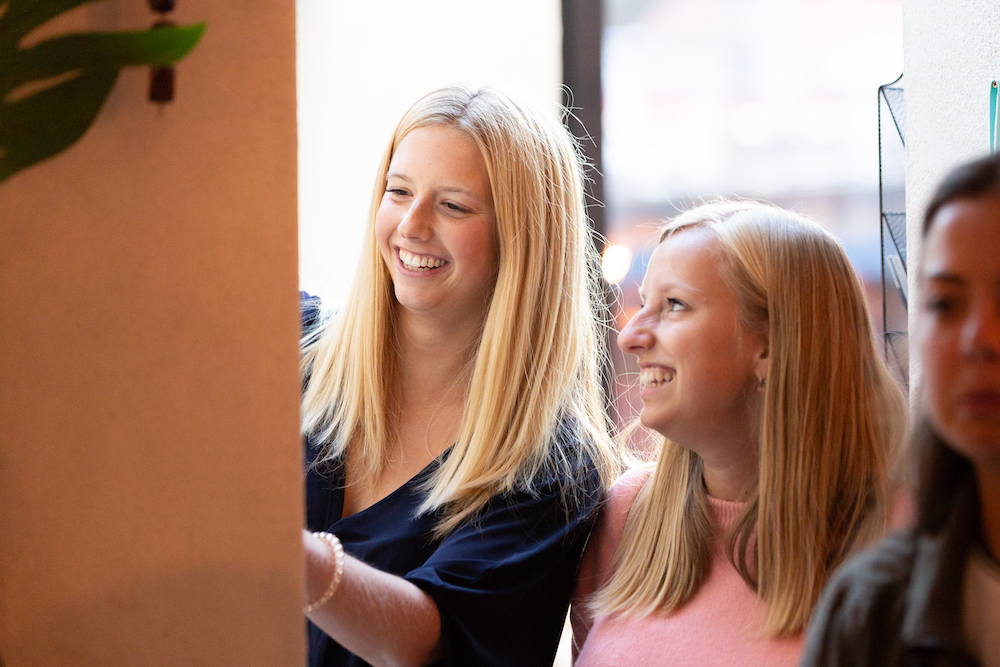How to live with roommates harmoniously & safely during a pandemic
The pandemic has thrown all areas of our lives for a loop -- from work to relationships to travel to, of course, our home life/living situation.
Safety First
Of course, the most important aspect is safety. And the CDC has a number of best practices and recommendations for shared living spaces. First, they say that COVID-19 prevention supplies should be provided in common areas, including soap, hand sanitizer, tissues, trash cans, and disposable masks.

They also say that non-essential visitors in the common area should be avoided and if there is someone that you don’t live within the house, to maintain six feet of distance. Of course, Cohabs holds the safety of its members to the utmost importance. Just as an example, our house manager in Brussels, Laure, shared what it was like implementing and continuing these practices. Before move-in, we monitor new members for 14 days prior to joining the space to make sure no one is sick. Cohabs distributes reusable masks to all new members and there are also touchless thermometers available in the houses so you can continually check it yourself. Rules for safe social distancing and best hygienic practices are posted in the common spaces of the house, and homes are cleaned at least once a week with electrostatic sprayers and COVID-19 certified cleaning solutions. If someone starts to feel unwell, they will be asked to wear a mask in the common areas, and Cohabs also has a doctor on-call to give telephone-hotline support and a live diagnosis to members.
Respect & Courtesy
Besides the hard-and-fast safety rules, there’s also the more personal/social aspect of communal living! Living with others who may have different opinions than you or levels of safety comfortability can get tricky. But there are simple strategies for ensuring a harmonious home life. Of course, many of the elements you might want to discuss with a roommate are completely taken care of by Cohabs: cleaning schedules/frequency of cleaning, plans if someone gets sick, rules for common spaces, etc.

For other issues like boundaries, frequency of seeing others outside the house, etc, open communication is key. Sitting down for a discussion and expressing how you feel in a calm and respectful manner will help you both understand better where the other is coming from, and come up with a compromising solution. Keith Renshaw, the director of psychology at George Mason University told The Atlantic, “Ask: ‘How strict does everybody want to be about social distancing?’ Recognize that you’re probably going to need to work [toward] the strictest level.” They also recommend checking in with how everyone is doing, keeping in mind that everyone is handling the new situation differently and genuine kindness and caring go a long way.
Still, if everyone maintains respect and courtesy toward one another, it should be a pretty seamless living situation. Laure even said that in Belgium houses, the housemates are handling the situation very well. “The housemates are really supportive and helping each other,” she said. “They are communicating in order to be sure everyone is feeling safe in the house.”
Becoming Family
Though at first you may have had questions about living with a group of people during the pandemic, once safety is taken care of, there are endless positive elements. While many experienced severe loneliness and isolation while quarantining, Cohabs members had built-in family and friends ready to spend their time with. Groups got creative with birthday celebrations, puzzles, exercise, movie-binges, murder mystery nights, and more. Just take a look here!

Laure also wrote about how “our roommates never spent so much time together and they all experienced this deeper connection between them. More than roommates, they became family.” So, if you’re interested in joining your own new family in Brooklyn, apply to join here! ---